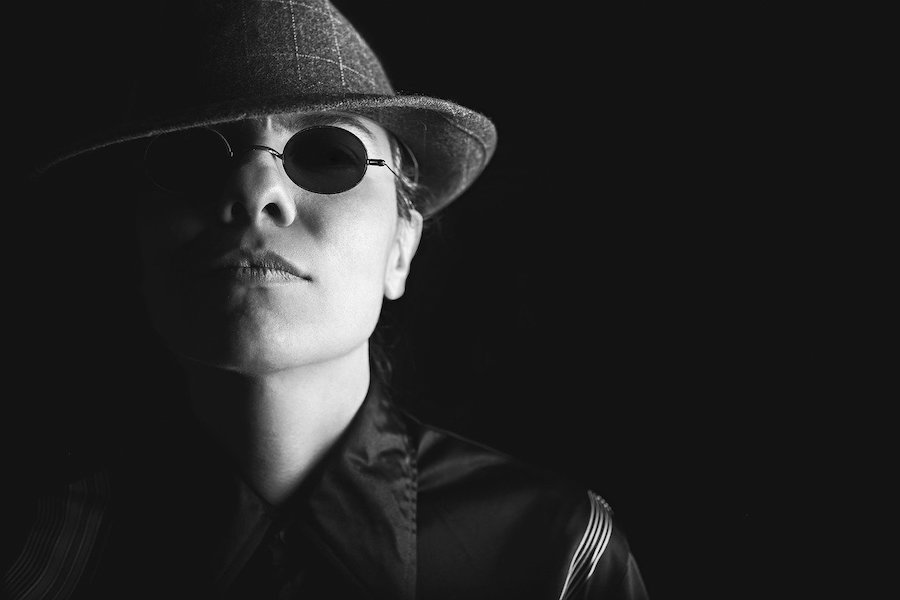When the tap on the shoulder came what would our undergraduate Proprietor decide?
Confession: I am an addict. If an author gets inside my head, I want to read everything by them immediately. Initial hit accomplished, I return regularly for smaller fixes. Over the years I have mainlined on Graham Greene, Nick Hornby, George Orwell, Clive James, A.J.P. Taylor, Hugh Trevor-Roper, Robert Caro, Raymond Chandler, F. Scott Fitzgerald, Evelyn Waugh, P.G. Wodehouse and many more. But there are two authors I have needed more than most.
I found my first Garrison Keillor novel backpacking in Townsville, Queensland, circa 1987. Thirty-five years on, I still listen to him weekly. I have plagiarised him in various wedding speeches, and I even applied to go on a fans’ boat trip to Norway. Once, after a longish lunch, I saw him, unmistakable and dressed head to toe in black. Darting out of the restaurant, I took on the traffic in Sloane Square, grabbed his hand and introduced myself. Without missing a beat, he looked down at me from a great height (I am 6’3” but he seemed to tower over me) and asked for my name again. “Stephen Yorke, sir.” “Stephen Yorke, eh; Stephen Yorke… that’s a great name; I’m going to use that someday.” Mouth open, I let go of his hand and he wandered on.
But my longest-standing literary fix is John le Carré. Each holiday it is him I read first. Having started in January 2021, I am once again through the first seven novels in the Smiley series. I lie awake at night pinpointing differences between the books, the TV series and films. Love him as I do, I am amazed that he has travelled so well, as there is no writer who is more English. The smell of damp darkness in rackety Bloomsbury and Earl’s Court top-floor flats, the amateurish decay of the Circus offices and the precision of the social profiling are all utterly London.
He wondered whether I might consider another line, one where I could serve my country. Swallow. This was it, the moment. I was being sounded out for you know what
As with Greene, so le Carré’s greyness, the small details and the melancholia are exhilarating. What Fitzgerald is for the American Jazz Age, le Carré is for England 1945-79. Broken financially and morally, desperate to stay in with ‘the cousins’, he peels back the layers of the English administrative class of that era and shows all they had was bureaucratic sophistication and duplicity. And, but for the intervention of one man, I might have been a part of it.
One evening in 1985, a law tutorial hour was coming to an end. A don, famous for his pipe and matches, the tap of his brisk step on a wooden stair and his total immersion in the establishment, offered me a sherry (it was one of his absurd but brilliant laws of life that one never asked for a sherry but was only ever offered one). What might I do next, he asked? Thinking to impress on him that his efforts were not going to waste, I said I hoped to go to the Bar.
Ignoring that bait, he wondered whether I might consider another line, one where I could serve my country.
Swallow. This was it, the moment. I was being sounded out for you know what. I said yes, I would consider it, without trying to look overexcited. A few days later I received a letter on gorgeous, stiff cream paper, with a deeply embossed dark-blue address, asking me to present myself at Carlton House Gardens (“in the shadow of the Duke of York”). In the interim I overdosed on all things spying, including of course le Carré but also Christopher Andrew’s official history of the service. I read myself into total conviction that the secret life was for me.
On the day itself, I presented myself in best blue suit, black lace-up shoes and sober tie. The man I met was straight out of central casting. Tall, dark and immaculately dressed, he was more Bond than Bond. The chat was general and undemanding. After about an hour, he said he would be in touch. A week later a second letter arrived, asking me back. Bloody hell – it was really happening.
Same suit, same shoes, same tie, one week later. Same saturnine superhero but different approach. First, sign here. Official Secrets Act. Now, this is what we do. He told me an incredible story about the service’s role during the Falklands War. I was sold – where do I sign? I was going to follow this fellow to the ends of the earth. Then, right at the end of the hour, he set me some takeaway exam questions. Was I the sort of person who would mind if others thought I had failed in my diplomatic career? (In those days, as an MI6 operative your external status peaked at first secretary.) Would I mind seeing others get all the credit for something I had done? Go away, he instructed, think about your answers and let me know if you want to take this any further.
How I wish I could have answered no to both questions. But even as a callow undergraduate, I knew enough about myself to admit the answers were the opposite of what he was looking for. I loved le Carré’s Smiley, Westerby, Control and Guillaume but I was not like them. I was too obvious, too vain, too needy. So it was that the spy who interviewed me saved me from what would have been a ruinous career decision, for me and for my country, and ensured I would forever be a happy observer of the great game and not a participant.








